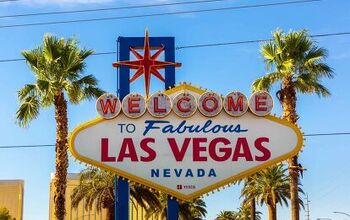Garbage Disposal Smells Like Rotten Eggs? (Possible Causes & Fixes)

Garbage disposals are an essential part of any household, and can make life so much easier by getting rid of food waste. In addition, over half of all Americans have no idea their garbage disposal can help reduce landfill waste! As important as garbage disposals are, there is one drawback: sometimes, it stinks.
If you notice your garbage disposal smells like rotten eggs, it could be old food stuck to your garbage disposal blades, or the smell of hydrogen sulfide coming from your sink. The smell could occur due to clogs, problems with your drain trap, or issues with your vent trap. These issues can be fixed easily at home or with the help of a professional plumber.
Do You Need to Hire a Plumber?
Get free, zero-commitment quotes from pro contractors near you.

How Does a Garbage Disposal Work?
Garbage disposals work by using a switch usually installed over the sink closest to the outlet to grind food down. It’s important to know how your garbage disposal at home works in order to rule out other issues that cause your disposal to malfunction. These can include:
- Damaged electrical components
- Shorted circuits
- Burnt outlets
- Damaged impeller blades
Some garbage disposals are better than others as well, and can handle bigger volumes of waste, but all will eventually need repair.
Potential Reasons Why Your Garbage Disposal Smells Like Eggs
Clogged Drains
When a kitchen sink drain clogs, it can cause that foul rotten egg smell to emanate from your garbage disposal. A sign that your drain is clogged is water backing up into your other sink when you turn on your garbage disposal.
Although you might still be able to get water to go through your sink, a clog can still be present in your drain, causing your garbage disposal to smell really bad!
Reasons Your Garbage Disposal Is Clogging Up
Garbage disposals can clog due to:
- Ill-kept maintenance
- Foods creating clogs
- Improper use
- Vent pipe and drain trap issues
- Dull impeller blades
- Having an old unit in need of replacement
Foods to Never Put in a Garbage Disposal
To prevent clogs from happening in your garbage disposal, it’s important to know foods to never put in a garbage disposal. These foods can cause clogs to form and a rotten smell to come from the sink.
Some of the foods you should never put into your garbage disposal include:
- Coffee grounds- Although coffee grounds appear to be, well, ground, they can cause major clogs in your sink. Like sand, coffee grounds become compact when entering a garbage disposal, leading to clogs
- Starchy foods- You ever feel incredibly full after eating foods such as pasta, rice, and potatoes? That’s because these foods are rich in starch and expand in your stomach, much like in the kitchen sink! Although it’s fine to put a little bit of starchy food in the garbage disposal, don’t make a habit of it. These foods can quickly expand and lead to clogs.
- Nuts and shells– Not only are nuts difficult to break down, but after grinding they can form a paste (such as peanut butter). These thick pastes can cause clogs as well.
- Onion top layer– If you’ve ever peeled an onion, you know that there is a thin membrane right underneath the paper-like outer layer. This membrane can be tough to dispose of, and can cause blades to get stuck by being tangled in them.
- Foods with membranes- Any stringy-like foods, such as celery, banana peels, corn husks, outer coconut fibers, and jicama are all susceptible to damaging your garbage disposal. These tough fibers can tangle in the disposal grinder and render it ineffective.
- Fats and oils– If you’ve ever cooked bacon or any food with a lot of fat, you might have noticed that if left to cool, fats eventually solidify. This is why it’s important to never put oils and fats down the drain, such as grease, as these can solidify and cause your garbage disposal to smell like rotten foods and eggs.
Problems with the Sink Trap
Every sink is equipped with a sink trap to prevent sewer gas from coming in through a home’s drain. This sink trap resembles a U-shaped pipe that has water within it, and helps stop the gas smell from coming into your home. It’s important to make sure your sink trap has water in it to work properly.
Not using your sink, such as after a long vacation, long renovations, or in a new home, can cause the water to evaporate. This can cause your garbage disposal to smell really bad! Luckily, this has a simple fix, which is just to refill the trap by running the water.
Ill-Fitted Drain Traps
Another issue can be the absence of a drain trap, which can happen when installing a new kitchen sink. A drain trap leaking might also be a cause of foul smells.
Drain traps can leak or be installed improperly after installing a new sink. Without professional help, and without a drain trap, the smell will continue to come into your home if no drain trap is present to stop it!
Plumbing Vent has an Issue
Plumbing vents can also be called vent stacks. They help regulate air pressure within your plumbing system. The plumbing vent pipe escapes from the roof of your home to let out gas and foul odors. It allows fresh air from the outside to help water flow through the drain pipes.
Plumbing vents can become clogged or even damaged due to severe clogs. This can cause a foul odor to remain in your sink and garbage disposal.
Fixing a Clogged Vent Pipe
Once plumbing vents are damaged to the point where you smell sewer gases, it’s a good indicator that there is a complete blockage in the vent pipe. Not only will your garbage disposal smell like rotten eggs, but so will rooms where the affected fixture (of fixtures) are located.
To fix a clogged vent pipe, you can physically inspect the pipe and remove any obstructions. Common obstructions include birds’ nests, stuck animals, and debris. The entrance to your vent might also be caved in. To prevent future clogs in your plumbing vent, invest in screens for your plumbing vent.
Do You Need to Hire a Plumber?
Get free, zero-commitment quotes from pro contractors near you.

Related Questions
How do I properly dispose of items?
As mentioned earlier, one of the biggest reasons your garbage disposal smells really bad is due to rotten food being stuck in there.One of the ways to prevent rotten food from forming in your garbage disposal is to dispose of all food items properly. To do so, follow these steps:
- Turn on your garbage disposal before placing food inside
- Turn on your sink’s cold water, as this will help solidify small amounts of grease and prevent them from getting stuck
- Let the cold water and motor run until the grinding sound stops
- After the grinding sound stops, wait 15-30 seconds before turning off the disposal, allowing any bits of food to break down properly
- Put only small amounts of food in the disposal at a time
Ideally, you should clean your garbage disposal every two weeks. To do so, follow these steps:
- Place about 10-12 ice cubes in the garbage disposal, along with citrus peels for added aroma
- Run your garbage disposal like normal until all grime and gunk is off the disposal blades
- Pour one cup of vinegar with a half-cup of baking soda down into the disposal. This is a natural solution that can kill off harmful bacteria from food. Let it sit for 15 minutes and fizz up
- Plug your drain opening and run water into the sink until it is about 3/4 full. Add some dish soap to the sink, and remove the drain plug.
- Let the water drain out while the garbage disposal runs
Garbage disposals typically last around 11 years. However, they can also last up to 15 years when properly maintained. A rotten egg smell alone isn’t enough to replace your garbage disposal.
However, if your garbage disposal smells really bad despite making the above-mentioned fixes, it might be time to contact a plumber. They can detect other issues that can be causing the foul smell, or swap out your disposal.
- You should also replace your garbage disposal if:
- The garbage disposal won’t start
- You notice cracks or leaks coming from the disposal
- You’re always resetting your unit
- You hear unusual noises from it
- You’re constantly getting clogs
A rotten egg smell coming from hydrogen sulfide usually isn’t harmful in small concentrations. However, in large concentrations and in enclosed spaces, hydrogen sulfide from sewers can be dangerous.
Long-term exposure can lead to symptoms such as fatigue, headaches, nausea, vomiting, dizziness, or poor memory since the foul smell started. It’s important to get medical help right away. Then, call a plumber to see if they can diagnose a sewer gas leak. Although rare, it’s important to fix a sewer leak if it is present.

We are a team of passionate homeowners, home improvement pros, and DIY enthusiasts who enjoy sharing home improvement, housekeeping, decorating, and more with other homeowners! Whether you're looking for a step-by-step guide on fixing an appliance or the cost of installing a fence, we've here to help.
More by Upgraded Home Team



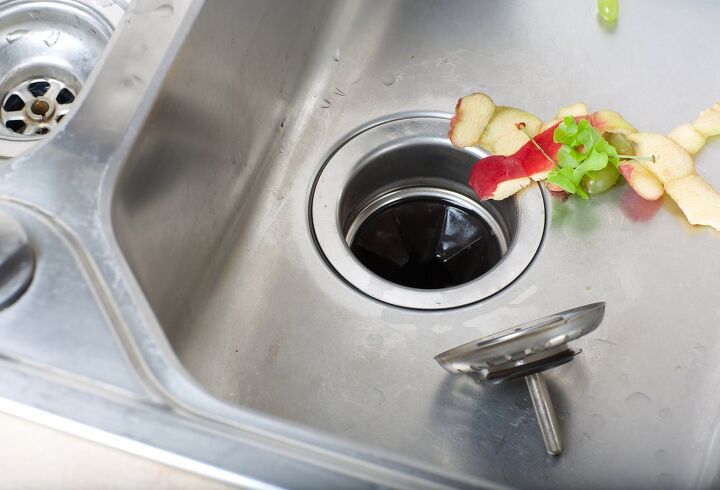









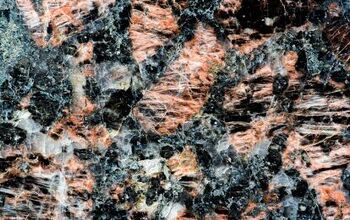
![10 Best Electric Lawn Mowers - [2022 Reviews & Top Rated Models]](https://cdn-fastly.upgradedhome.com/media/2023/07/31/9070486/10-best-electric-lawn-mowers-2022-reviews-top-rated-models.jpg?size=350x220)
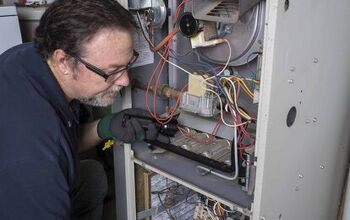

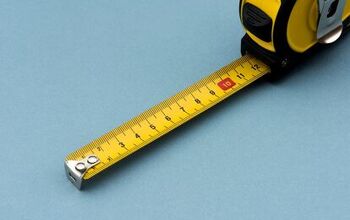

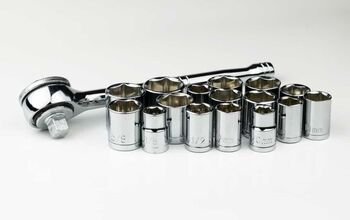
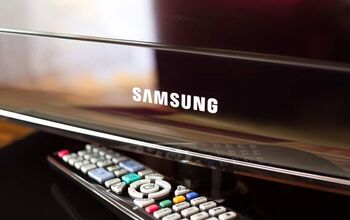


![Standard Dining Room Table Dimensions [for 4, 6, 8, 10 and 12 People]](https://cdn-fastly.upgradedhome.com/media/2023/07/31/9074335/standard-dining-room-table-dimensions-for-4-6-8-10-and-12-people.jpg?size=350x220)

